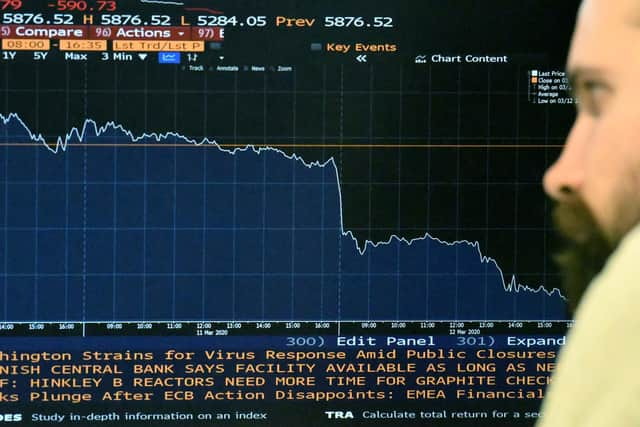The FTSE 100 at 40: Evolution is needed as Brexit leaves index out of favour - Richard Hunter
In a time of high excitement in high growth stocks, particularly technology shares in the US where the potential for AI has led the so-called “Magnificent Seven” to stellar returns, especially last year, the FTSE100’s lack of obvious exposure to the tech sector has been a hindrance.
Investors chasing growth have eschewed the UK’s premier index, since its constituents are seen as being past the growth phase, and while rather more dependable, cash generative and stable, many of its companies are seen as having the potential for little more than pedestrian growth in representing the “old economy”.
Advertisement
Hide AdAdvertisement
Hide AdThis can have its advantages, however. 2022 was a tough year for markets, and the likes of the S&P500 and Nasdaq fell by 19.5 per cent and 33.1 per cent respectively.


Given its defensive qualities, however, the FTSE100 eked out a gain of 0.9 per cent for the year, thus outperforming many of its global peers by a considerable margin.
By the same token, last year was a rather different time as investors sought growth once more.
The S&P500 added 24.2 per cent and the Nasdaq 43.4 per cent, while the FTSE100 managed a gain of just 3.8 per cent.
Advertisement
Hide AdAdvertisement
Hide AdIn terms of valuation, the index is cheap by historic standards to itself, let alone its global peers.
Whereas the FTSE100 trades on around 10 times earnings, the world index is valued at around 19 times and the S&P500, for example, at around 21 times.
For many, the index is at something of an inflection point. Undoubtedly cheap, but without the propulsion of technology shares.
Well regarded, regulated and respected yet unable to attract new companies which are more highly valued among larger pools of capital elsewhere. Rumours of regulatory reforms to the market which could improve new listing prospects, but as yet without any firm details.
Advertisement
Hide AdAdvertisement
Hide AdAs it currently stands, the index runs the risk of mature companies – admittedly providing stable returns – holding back the index given the lack of true growth potential.
The index will look rather different in another 40 years’ time, but in the interim it will need a seismic shift to protect its long-term future.
As the global economy continues to evolve through technology generally, and perhaps AI in particular, as well as the implications for companies which can contribute to combatting climate change, sustainable products and changing consumer trends, the challenges are ones which need to be faced head on.
Part of this change is arguably already in train, with an estimated 75 per cent of earnings coming from overseas, thus reflecting and benefiting from global progress.
Advertisement
Hide AdAdvertisement
Hide AdIn terms of the sectors in which the top UK companies actually operate, however, it may be that the very constituents of the premier index may need to alter to reflect a new, dynamic and ever-changing global environment.
Richard Hunter is Head of Markets at interactive investor
Comment Guidelines
National World encourages reader discussion on our stories. User feedback, insights and back-and-forth exchanges add a rich layer of context to reporting. Please review our Community Guidelines before commenting.